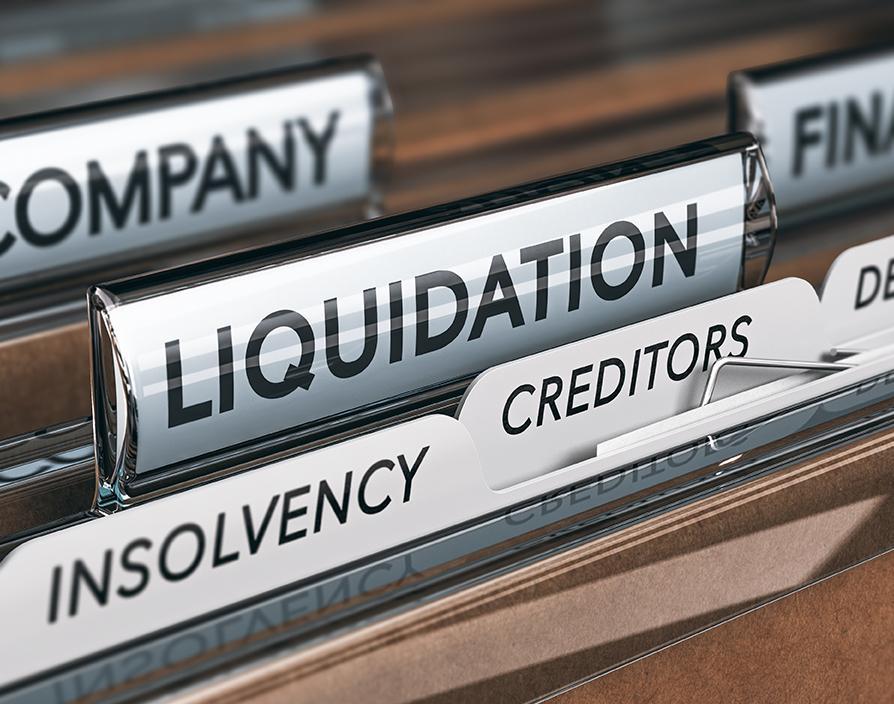Examine This Report on Insolvency Practitioner
Examine This Report on Insolvency Practitioner
Blog Article
The 2-Minute Rule for Insolvency Practitioner
Table of ContentsRumored Buzz on Insolvency Practitioner7 Easy Facts About Insolvency Practitioner ShownThe Main Principles Of Insolvency Practitioner 6 Easy Facts About Insolvency Practitioner DescribedInsolvency Practitioner Fundamentals ExplainedRumored Buzz on Insolvency PractitionerWhat Does Insolvency Practitioner Mean?The Only Guide for Insolvency PractitionerNot known Details About Insolvency Practitioner
This can take place for a variety of factors, consisting of inadequate economic administration, unforeseen costs, or a change in the market. If a company is bankrupt, it might be forced to close down or sell possessions to pay lenders. This can have a major influence on the service, workers, and shareholders.
The Ultimate Guide To Insolvency Practitioner
Various other reasons for insolvency include fraud, mismanagement, and unexpected costs. When a company becomes financially troubled, its possessions are utilized to settle its financial obligations. This can have a major impact on business, as it might no much longer have the ability to continue operating. Bankruptcy can additionally cause task losses and the closure of services.
The business might be required to sell possessions, lay off staff or also shut down. Lenders might be left out of pocket and the business's investors may see their financial investment disappear.
Bankruptcy is the process whereby a company is ended up and its assets are liquidated to pay creditors. This is usually the last hope, as it can have a very adverse result on the firm's online reputation. Receivership occurs when a company is incapable to pay its financial obligations and is positioned under the control of an external administrator.
How Insolvency Practitioner can Save You Time, Stress, and Money.
Volunteer administration resembles receivership, yet it is launched by the directors of the firm as opposed to the creditors - Insolvency Practitioner. This alternative is commonly used when a firm is encountering financial troubles however there is still wish that it can be reversed. Business bankruptcy is a complicated and significant problem that can have far-reaching ramifications for businesses of all dimensions
With the right assistance, you can ensure that your service has the best opportunity of weathering this difficult time.
Insolvency Practitioner Things To Know Before You Buy
Whatever your reason for closing your organization, there are several factors to consider you need to address before 'closing the doors'. There's likewise a whole lot you can do to make the procedure much less stressful and improve results. Closing down your service is not almost meeting the practical and legal demands.
Look after your workers As a company, you require to keep an eye on and give assistance to your staff members throughout this demanding time. Be mindful of any kind of feasible wellness and wellbeing issues they might experience as a result of: job insecuritytransitioning through the sale of the businesschange in proprietors. This Site You can: There are generally 2 scenarios in which you would willingly shut your service.
You also: do not desire to, or can't, sell the businesshave no-one to take it over. You could be shutting your company because: it's not covering its expenses and running costsyou can't maintain the operating expenses while trying to market it.
7 Simple Techniques For Insolvency Practitioner
There are many things you require to resolve before closing your organization. Your accountant, lawyer or organization adviser will be able to assist you with this.
You must finalise all tax obligation issues for your organization, even if it's no much longer trading. This includes your obligations relating to payment of: fringe advantages taxpay-as-you-go (PAYG)superannuationemployment termination.
Insolvency Practitioner Things To Know Before You Buy
Bankruptcy takes place when your service can not pay its financial debts, which can result in your organization shutting down. Various insolvency procedures apply to people and firms.
If you attempt to take care of it yourself, you'll require to interact with every lender separately to try to negotiate normal settlement quantities. Insolvency or bankruptcy advisers can: assistance you with the processhelp you comprehend your optionsnegotiate with your creditors in your place. They hold details permits and certifications in this specialised area.
3 Simple Techniques For Insolvency Practitioner

Individual insolvency for single investors and individuals within collaborations Personal insolvency treatments use to: Before starting an individual bankruptcy procedure, it's important to comprehend the: effect of the consequenceshow long the influence will certainly be., additionally known Discover More as a Part IX contract, enables you, or the assigned manager, to negotiate with your lenders to pay a portion of the mixed financial debts over a duration of time to your administrator, rather than trying to continue making payments to each lender.
Business insolvency and liquidation An 'financially troubled business' is not able to pay its financial obligations or cover the expense of its expenses. In some circumstances, financially troubled business might go right into liquidation. Liquidation is when an independent authorized liquidator is selected to take control over the business and wind up the company service in an organized means.
Insolvency Practitioner Fundamentals Explained
As noted in the Intro, while the report expresses particular choices relative to several of the more vital of these choices, it does not try to establish criteria in this complicated area. It might require to be updated in the future to take into account growths great post to read in this location.
Sonia Piccinini dedicated considerable time and initiative in the preparation of this magazine. The views expressed in the record are those of the IMF's Legal Division and must not be attributed to the Exec Directors or the Monitoring of the IMF. FRANOIS GIANVITI Recent experience has actually demonstrated the degree to which the lack of orderly and reliable insolvency treatments can exacerbate economic and economic crises.
Report this page